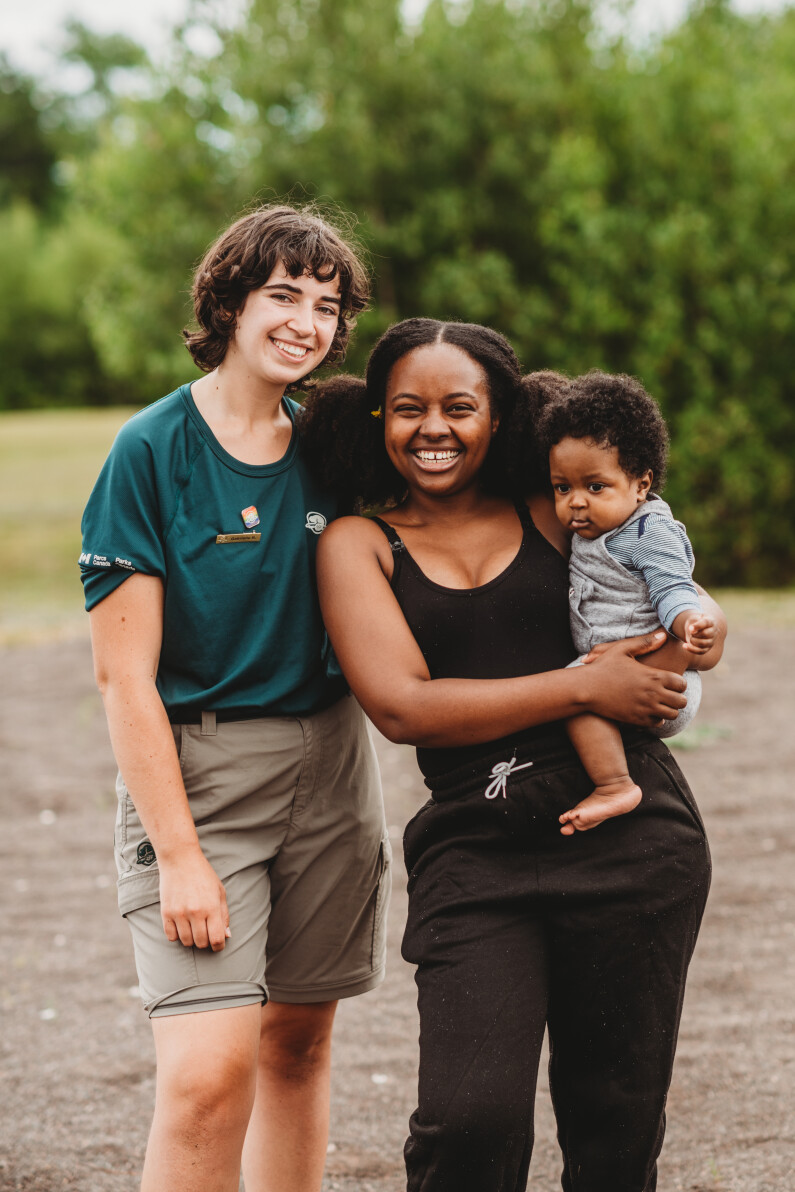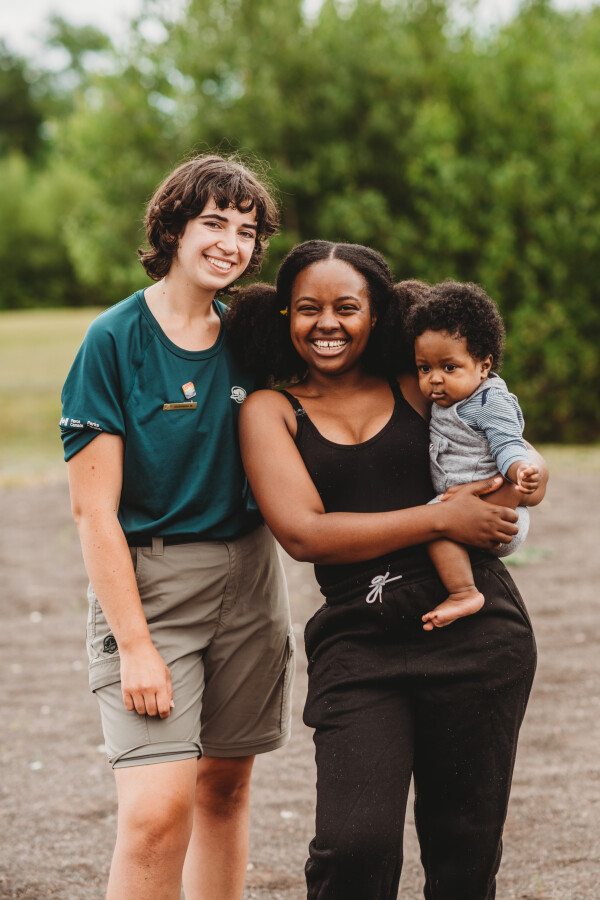
 Coming to a new country with unfamiliar customs and a different language, alone and pregnant, was scary but not insurmountable for Bahati Hategekimana.
Coming to a new country with unfamiliar customs and a different language, alone and pregnant, was scary but not insurmountable for Bahati Hategekimana.
Originally from Rwanda, Bahati came to Pictou County via Kenya as a as a skilled-refugee using the Economic Mobility Pathway Pilot (EMPP) about a year ago.
Creating a new home wasn’t easy, she says.
“There is initial excitement, especially for someone who is coming from a refugee background, so it was exciting to no longer be a refugee. And in that excitement, you forget that it was going to be hard. Then you get here and you realize that you don’t know anyone, you don’t know the culture or the lifestyle here, there’s a lot to learn and unlearn.”
Compounding matters for Bahati was the fact that her husband, Sean Maganjo, wasn’t with her and she was pregnant with the couple’s first child. “So that made things worse – and it was during Covid. It probably would have been easier for me to get used to this place as a home if I could have met people and gone out to explore, but it was all the more difficult because I was restricted to my house and workplace because of Covid. And it was hard on me mentally being separated from my husband and being pregnant as well.”
A registered nurse in her home country, Bahati now works at Glen Haven Manor in New Glasgow as a continuing care assistant. “I was grateful to have work because where I was coming from as a refugee I did not have a legal right to work, so even though I was coming here at an entry level and not an RN, I was working, and that was important knowing that I can plan for my future and plan for my baby. I was just grateful just to be able to work.”
Her job was a distraction from the loneliness of being isolated and she credits the people she met here as helping her through her first few months of being alone.
“What helped was the few people that I knew, I felt they were very intentional to make sure that I didn’t feel isolated. Even though we couldn’t go out exploring Nova Scotia or go out to the ocean because it was so cold, or people weren’t doing that because of Covid, at least I had people who would talk to me about the things we could do and tell me that it’s not always like this, that it gets better, people have parties, people eat together, restaurants will be open again, that this is unusual even for us,” she laughs. “It helped.”
Making friends and social connections was a breeze for the outgoing, vivacious Bahati, but the restrictions brought about by Covid did not help. She found that once she did have the opportunity to meet people, it was easy to connect with them. “I think that’s what’s special about Pictou County: the people are very open. I think people are very aware of the lack of diversity or the lack of health care personnel here. So if I got into a conversation with someone and mentioned that I was a nurse they would say thank you, we need nurses. It was just so easy to make friends once there was the opportunity.”
The most difficult part of resettling here for Bahati was not being with her husband. “We had been newly married, and I think it would have been easier for me with a new environment and everything if we were doing it together so the hardest thing for me is I was not with my husband and unfortunately that is something that happens a lot with immigrants. But if you are eager to get a better life, however it comes you take it.”
People were the resources that helped her the most. She says the Y REACH Settlement staff as well as the staff at Pictou County Partnership were central to how supported she felt in her new home. “What they do is they orient us to where we are. It’s very hard as a new person to come in and know what you need to do and where to get it done and where you can get it done the best or in the most friendly way, so the people have been the best resource for me because they know where to get everything, they know where to do everything, they know who I need to talk to if I need anything.”
When her husband arrived – one day after the birth of their son, Ivan – “then it started to feel like home,” she smiles.
While she has only been here for about a year, Bahati says it is interesting to see diversity growing here. “I wasn’t expecting a whole lot of people who looked like me, so it was interesting to see the representations here and there.”
She would like to see more places that have items she can relate to her native home. “We don’t have an African store here but there is one in Halifax and it was really nice to see what home meant to me and that meant having people I could relate to; it also meant me accessing the things that I could when I was back home, so being able to find a place that sells food that I’m used to, that I like, even though it’s in Halifax it’s close enough; it helps make me feel like I’m home and this could be home for me.”
Her advice to other newcomers is simple: “I would just tell them to be open to fall in love, and open yourself so that others can love you and get to know you. People should be willing to open themselves up to others and know that they will be welcomed and they will get a smile in return.”
Published August 2022



